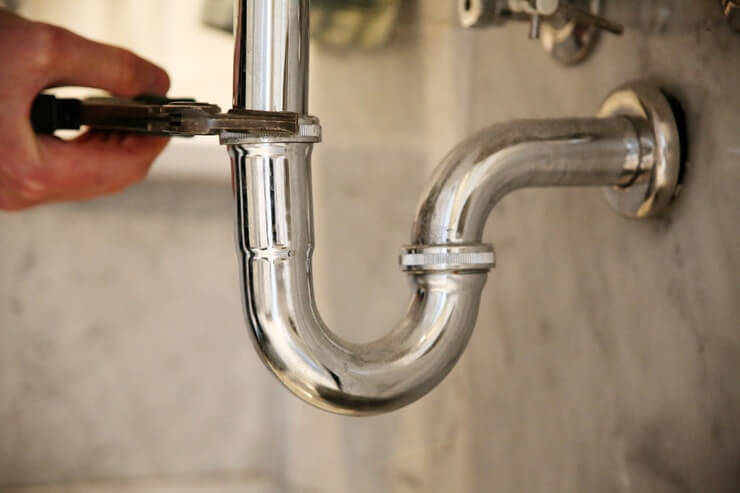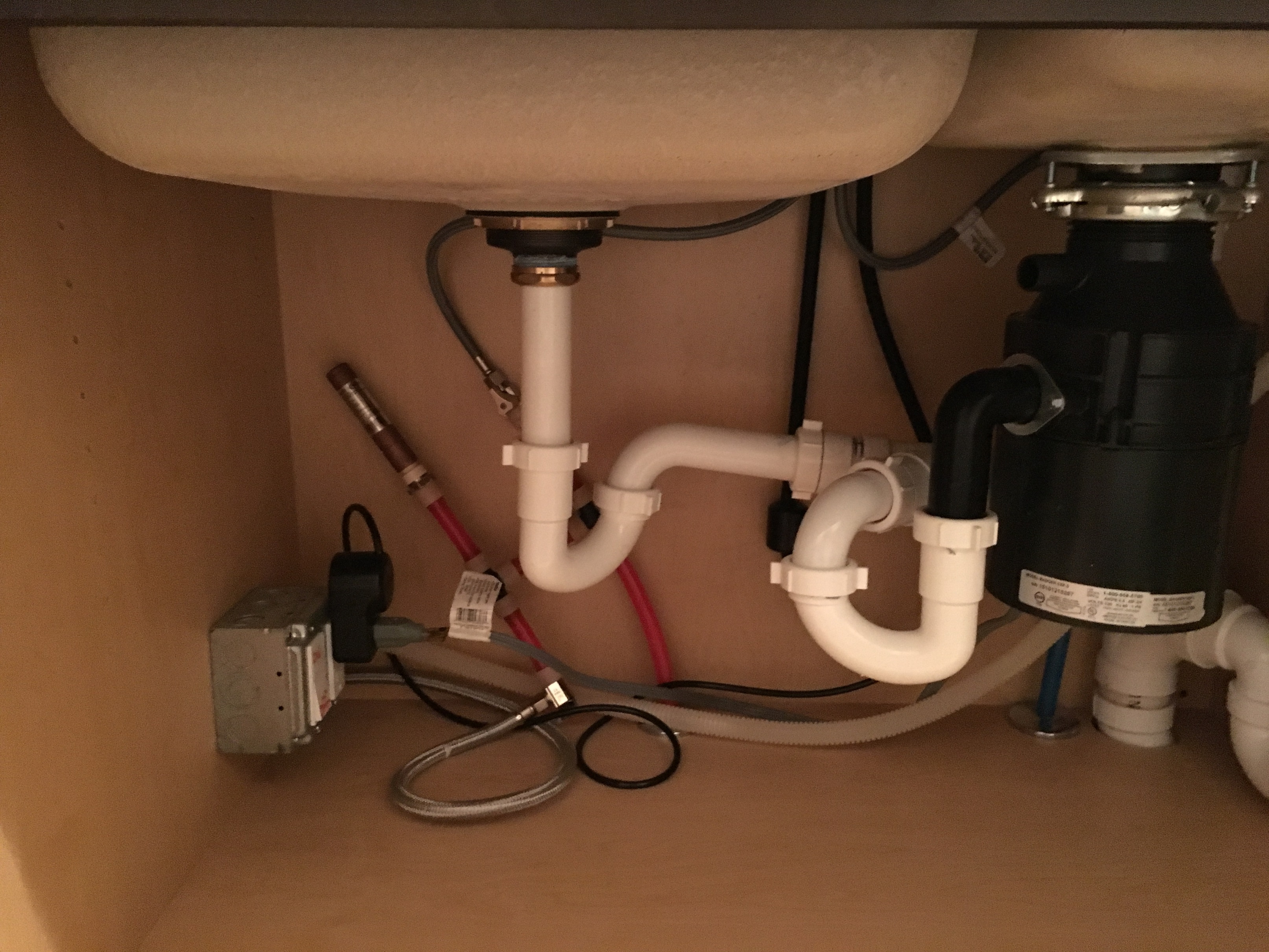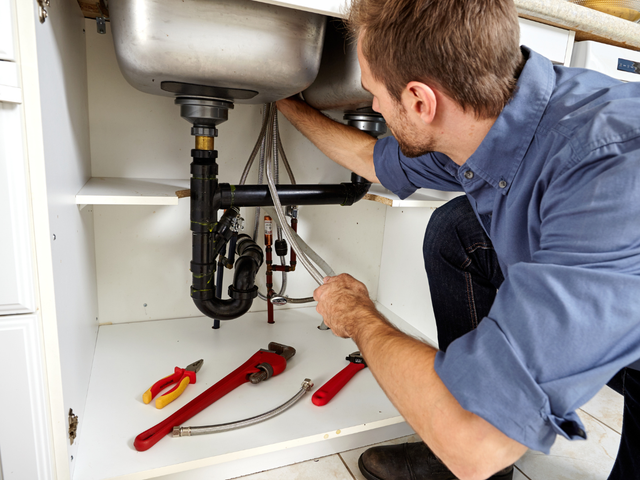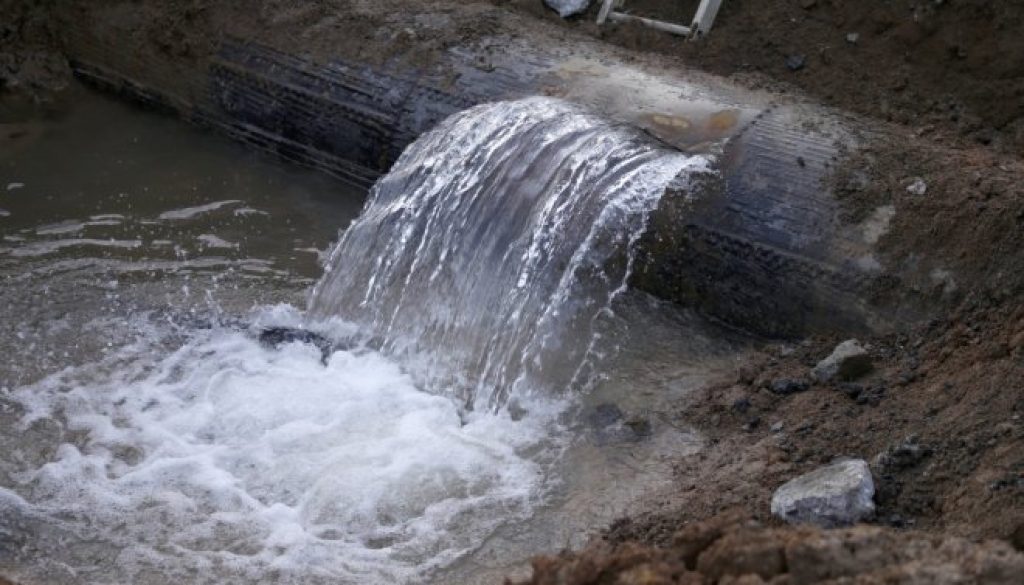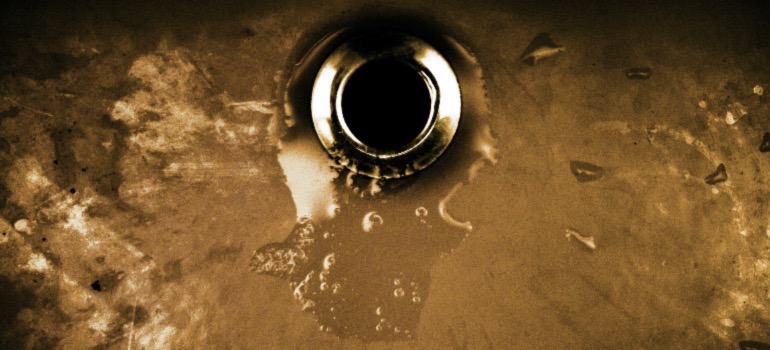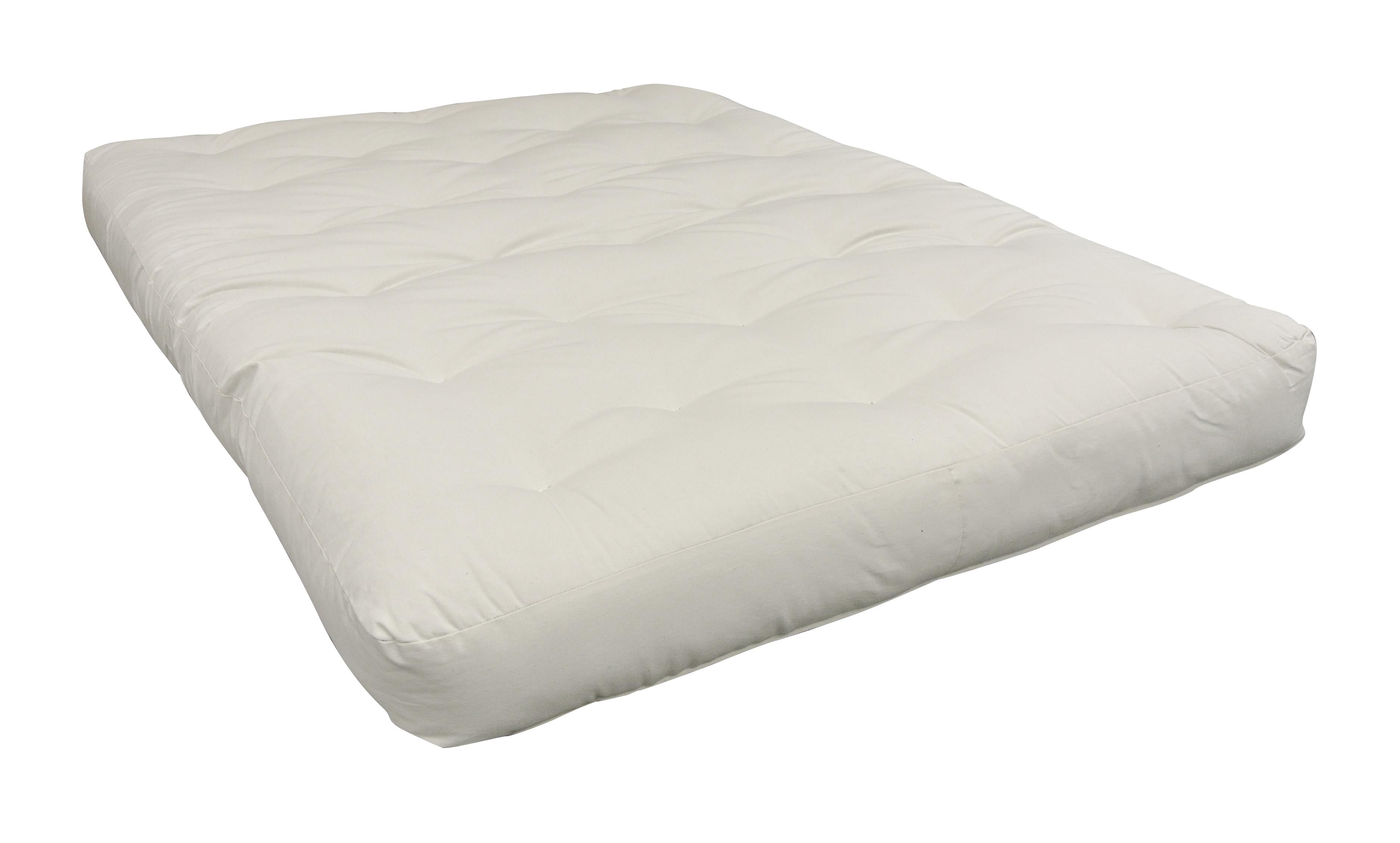If you've noticed a foul odor coming from your kitchen sink, chances are it's a sewer smell. This unpleasant smell can be caused by a variety of factors, including clogged drains, cracked or damaged pipes, and buildup of food and grease in the pipes. The main culprit, however, is often a sewer backup. This occurs when the main sewer line is clogged or blocked, causing sewage to back up into your home's plumbing system. Not only is this smell unpleasant, but it can also be a health hazard, so it's important to address it as soon as possible.1. Causes of Sewer Smell in Kitchen Sink
Dealing with a sewer smell in your kitchen sink can be a frustrating and unpleasant experience. However, there are several steps you can take to get rid of the smell and prevent it from coming back. One of the first things you should do is check for any clogs in your kitchen sink's drain. Use a plunger or a drain snake to clear out any debris or buildup that may be causing the odor. If this doesn't solve the problem, it's time to investigate further.2. How to Get Rid of Sewer Smell in Kitchen Sink
As mentioned earlier, a sewer backup is the most common reason for a sewer smell in your kitchen sink. This can happen due to a variety of reasons, such as tree roots invading your sewer line, a damaged pipe, or a clog caused by flushing inappropriate items down the toilet. Another common reason for a sewer smell is a dried out P-trap. This is a curved section of pipe under your sink that holds water to prevent sewer gas from entering your home. If this trap dries out, it can allow the smell to escape into your kitchen.3. Common Reasons for Sewer Smell in Kitchen Sink
If you're dealing with a sewer smell in your kitchen sink, there are some DIY solutions you can try before calling in a professional plumber. One option is to pour a mixture of baking soda and vinegar down your drain, followed by hot water. This can help break down any buildup and eliminate odors. Another method is to pour hot water and dish soap down your drain, which can help dissolve grease and grime. You can also try using a commercial drain cleaner, but be sure to follow the instructions carefully and use it sparingly to avoid damaging your pipes.4. DIY Solutions for Sewer Smell in Kitchen Sink
If you've tried DIY solutions and the sewer smell in your kitchen sink persists, it's time to call in a professional plumber. They will have the necessary equipment and expertise to diagnose and fix the issue. They may use a video camera to inspect your pipes and locate the source of the smell, and then use a high-pressure water jet to clear out any clogs or buildup. In more severe cases, they may need to repair or replace damaged pipes or the main sewer line.5. Professional Help for Sewer Smell in Kitchen Sink
Prevention is always better than cure, so taking steps to prevent a sewer smell in your kitchen sink is essential. First, avoid flushing inappropriate items down the toilet, such as paper towels, wipes, or feminine hygiene products. These can easily clog your pipes and lead to a sewer backup. Also, be mindful of what you pour down your kitchen sink drain. Avoid pouring grease, oil, and food scraps down the drain, as these can solidify and cause clogs. Lastly, regularly clean your kitchen sink and drains to prevent buildup and keep them functioning properly.6. Preventing Sewer Smell in Kitchen Sink
It's essential to be able to identify a sewer smell in your kitchen sink so you can take action to eliminate it. Typically, the smell will be a strong, unpleasant odor, similar to rotten eggs or sewage. You may also notice gurgling sounds coming from your drains or slow drainage. If you suspect a sewer smell, try running water down your drain and see if the smell gets stronger. If it does, then the source is likely in your plumbing system.7. How to Identify Sewer Smell in Kitchen Sink
Aside from being unpleasant, a sewer smell in your kitchen sink can also pose health risks. Sewer gas contains harmful bacteria and can cause respiratory issues, nausea, and dizziness. In extreme cases, it can even lead to carbon monoxide poisoning. If you or your family members experience any symptoms related to sewer gas exposure, seek medical attention immediately.8. Health Risks of Sewer Smell in Kitchen Sink
When faced with a sewer smell in their kitchen sink, many people make the mistake of ignoring it or trying to mask the odor with air fresheners. However, this will not solve the underlying issue and can even make it worse. Another common mistake is using too much commercial drain cleaner, which can damage your pipes and be hazardous to your health. It's best to address the problem promptly and seek professional help if DIY solutions don't work.9. Common Mistakes When Dealing with Sewer Smell in Kitchen Sink
To avoid dealing with a sewer smell in your kitchen sink, it's essential to prioritize regular maintenance of your plumbing system. This includes scheduling annual inspections and cleaning of your drains and pipes. Regular maintenance can help identify and address any potential issues before they become major problems, saving you time, money, and the hassle of dealing with a sewer smell in your kitchen sink.10. Importance of Regular Maintenance to Avoid Sewer Smell in Kitchen Sink
How to Eliminate Sewer Smell in Your Kitchen Sink
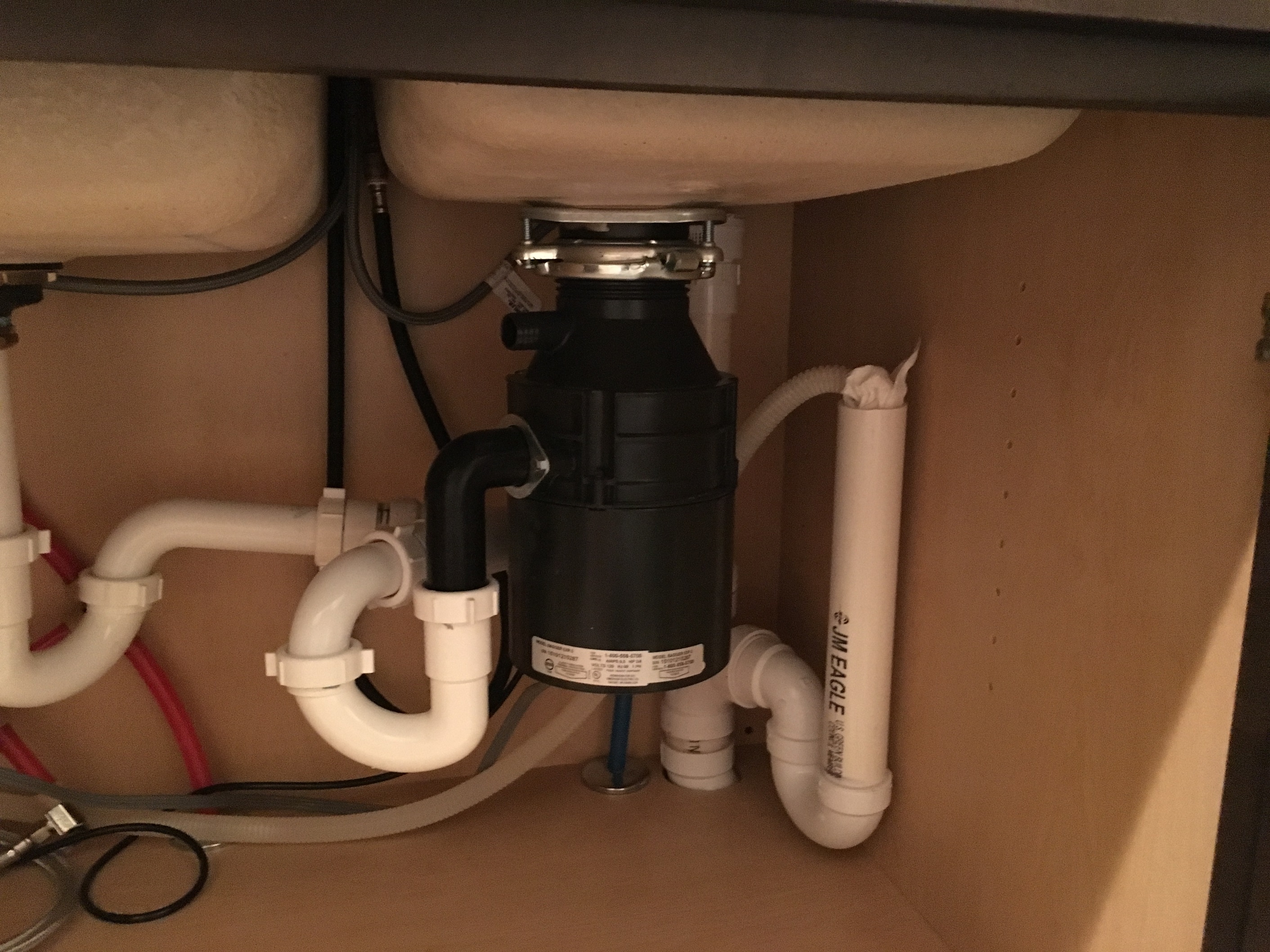
Identify the Source of the Smell
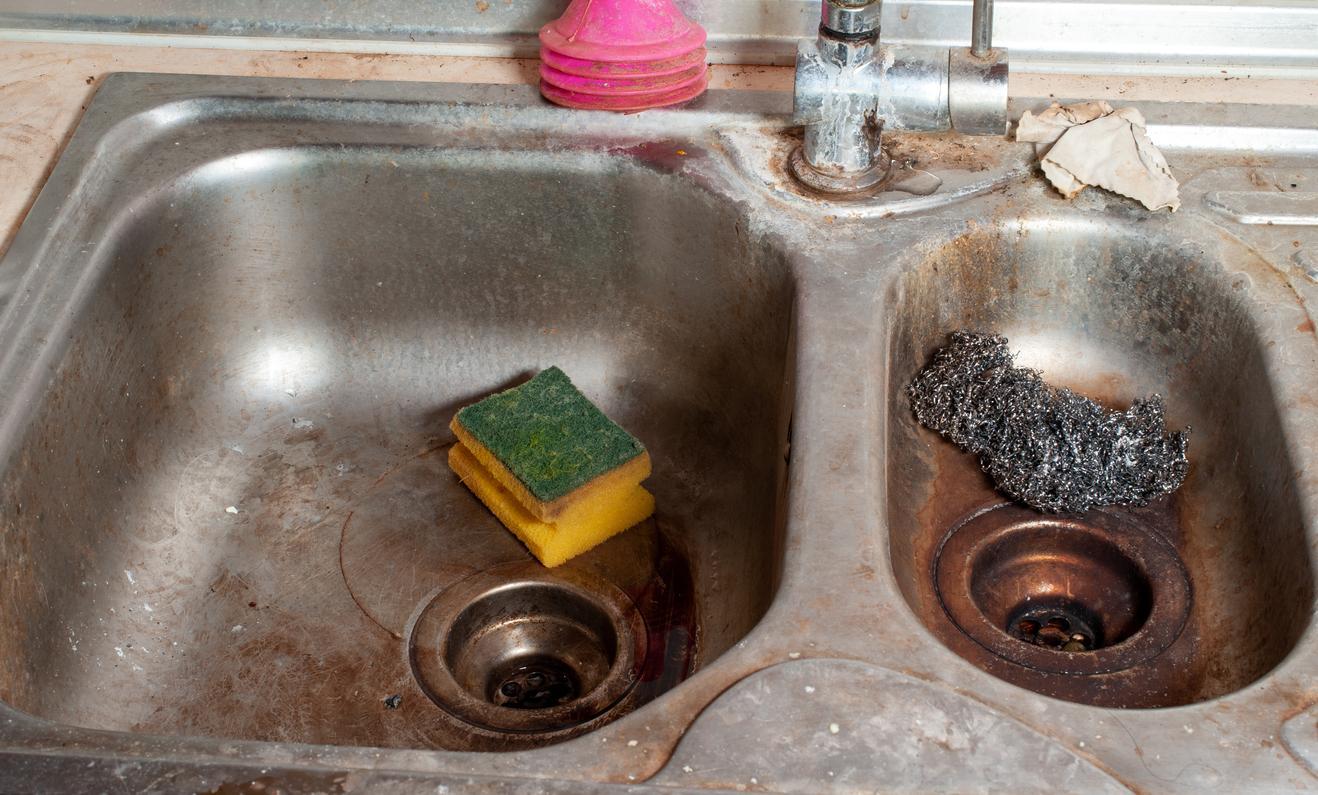 One of the most common complaints from homeowners is the presence of a sewer smell in their kitchen sink. The unpleasant odor can be overwhelming and difficult to get rid of. However, before you can effectively eliminate the smell, you must first identify the source. The most common cause of sewer smell in the kitchen sink is a build-up of organic matter and debris in the drain trap. This can result in bacteria growth, which produces the unpleasant smell.
One of the most common complaints from homeowners is the presence of a sewer smell in their kitchen sink. The unpleasant odor can be overwhelming and difficult to get rid of. However, before you can effectively eliminate the smell, you must first identify the source. The most common cause of sewer smell in the kitchen sink is a build-up of organic matter and debris in the drain trap. This can result in bacteria growth, which produces the unpleasant smell.
Clean and Deodorize the Drain Trap
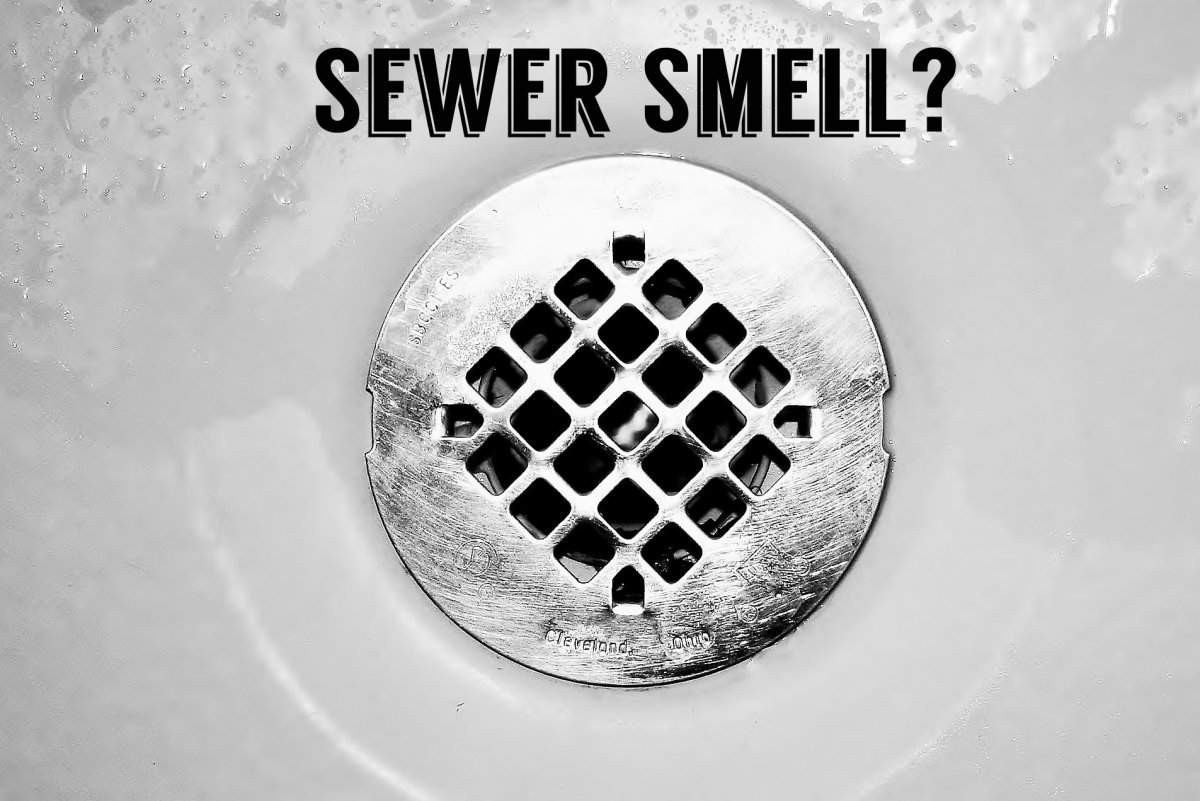 To eliminate the sewer smell, start by cleaning and deodorizing the drain trap. First, remove any visible debris or gunk from the trap using a pair of gloves. Next, mix equal parts of
baking soda and white vinegar
and pour it down the drain. The combination will create a fizzing reaction that helps to break down any remaining organic matter and neutralize the odor. Let it sit for about 15 minutes, then flush the drain with hot water.
To eliminate the sewer smell, start by cleaning and deodorizing the drain trap. First, remove any visible debris or gunk from the trap using a pair of gloves. Next, mix equal parts of
baking soda and white vinegar
and pour it down the drain. The combination will create a fizzing reaction that helps to break down any remaining organic matter and neutralize the odor. Let it sit for about 15 minutes, then flush the drain with hot water.
Flush Drain with Boiling Water
 Another effective method for getting rid of the sewer smell is to flush the drain with boiling water. This helps to melt away any solidified grease or oils that may be contributing to the odor. Simply heat a pot of water on the stove until it reaches boiling point and carefully pour it down the drain. Repeat this process a few times until the water runs clear.
Another effective method for getting rid of the sewer smell is to flush the drain with boiling water. This helps to melt away any solidified grease or oils that may be contributing to the odor. Simply heat a pot of water on the stove until it reaches boiling point and carefully pour it down the drain. Repeat this process a few times until the water runs clear.
Use a Commercial Drain Cleaner
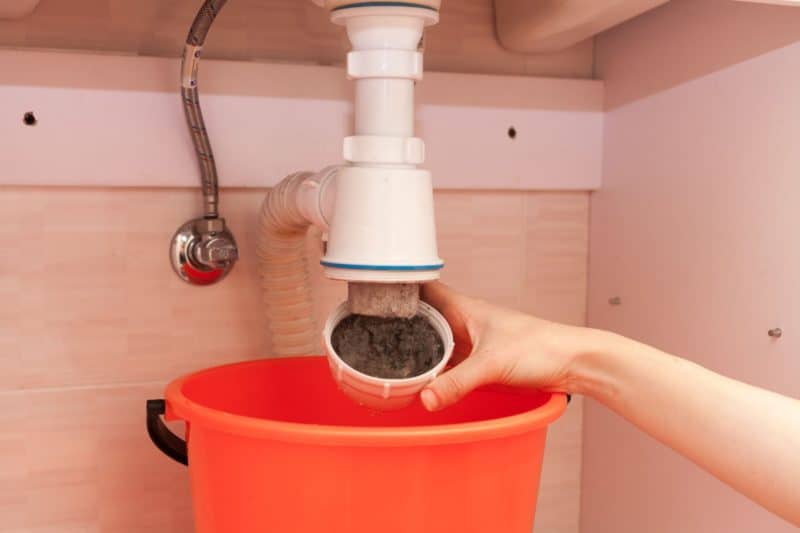 If the above methods do not eliminate the sewer smell, you may need to use a commercial drain cleaner. These products are specifically designed to break down organic matter and eliminate odors. However, it is important to carefully follow the instructions on the product and use it in a well-ventilated area. Additionally, some drain cleaners can be harmful to certain types of pipes, so be sure to check the label before use.
If the above methods do not eliminate the sewer smell, you may need to use a commercial drain cleaner. These products are specifically designed to break down organic matter and eliminate odors. However, it is important to carefully follow the instructions on the product and use it in a well-ventilated area. Additionally, some drain cleaners can be harmful to certain types of pipes, so be sure to check the label before use.
Prevent Future Odors
 To prevent the sewer smell from returning, it is important to maintain proper drainage in your kitchen sink. Avoid pouring grease, oils, and food scraps down the drain, as these can contribute to clogs and bacterial growth. You can also use a
plunger
to periodically flush out the drain and keep it clear of any debris. Additionally, running hot water down the drain after each use can help to prevent any build-up and keep the smell at bay.
In conclusion, a sewer smell in your kitchen sink can be a frustrating and unpleasant problem. However, with the proper maintenance and cleaning techniques, you can effectively eliminate the odor and prevent it from returning. By following these steps and keeping your drain trap clean, you can enjoy a fresh and odor-free kitchen sink.
To prevent the sewer smell from returning, it is important to maintain proper drainage in your kitchen sink. Avoid pouring grease, oils, and food scraps down the drain, as these can contribute to clogs and bacterial growth. You can also use a
plunger
to periodically flush out the drain and keep it clear of any debris. Additionally, running hot water down the drain after each use can help to prevent any build-up and keep the smell at bay.
In conclusion, a sewer smell in your kitchen sink can be a frustrating and unpleasant problem. However, with the proper maintenance and cleaning techniques, you can effectively eliminate the odor and prevent it from returning. By following these steps and keeping your drain trap clean, you can enjoy a fresh and odor-free kitchen sink.

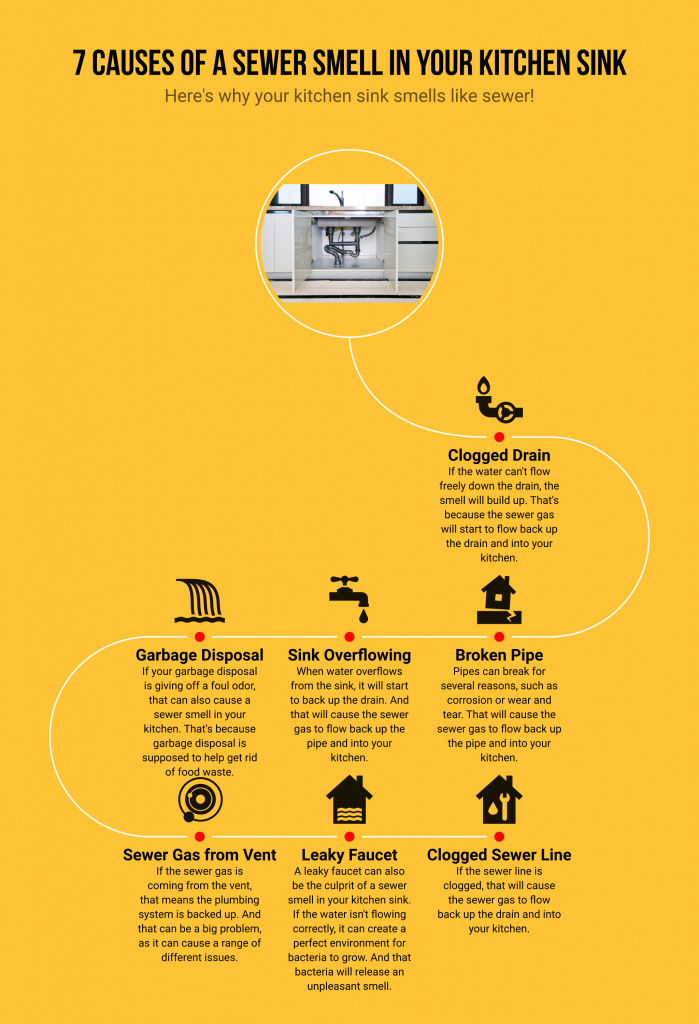
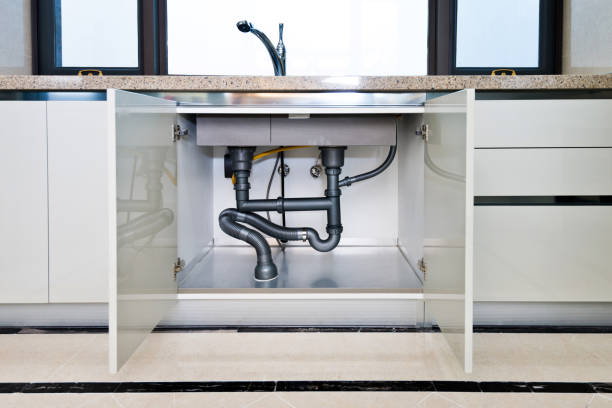



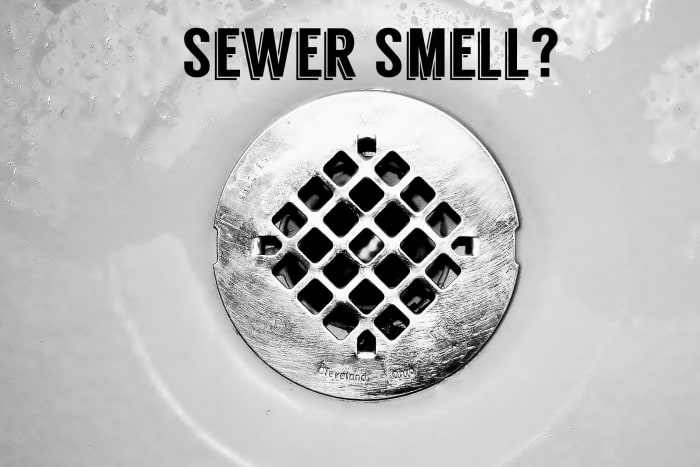
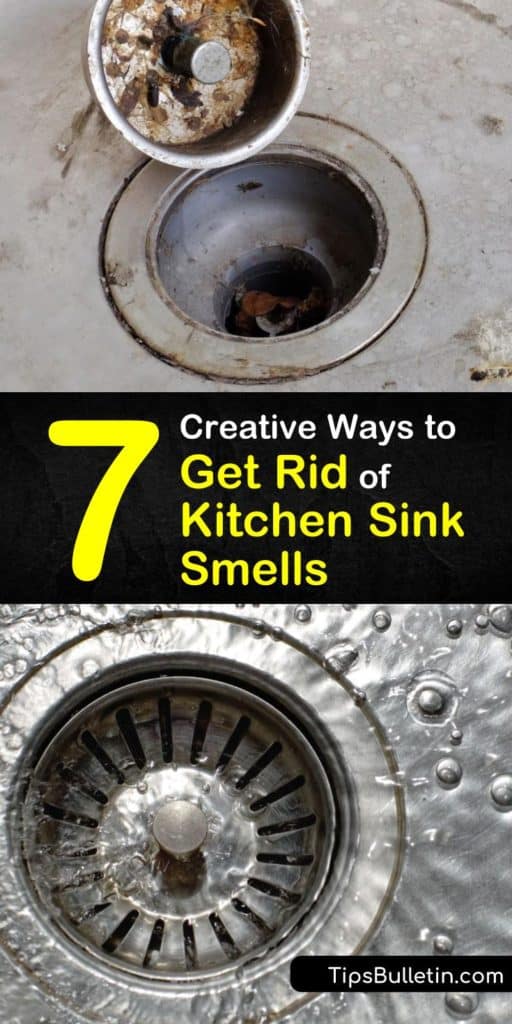


:max_bytes(150000):strip_icc():format(webp)/why-does-my-kitchen-sink-smell-like-sewage-4707719_01-2030e27351fe4c6c9e1d94145dbbe30a.jpg)







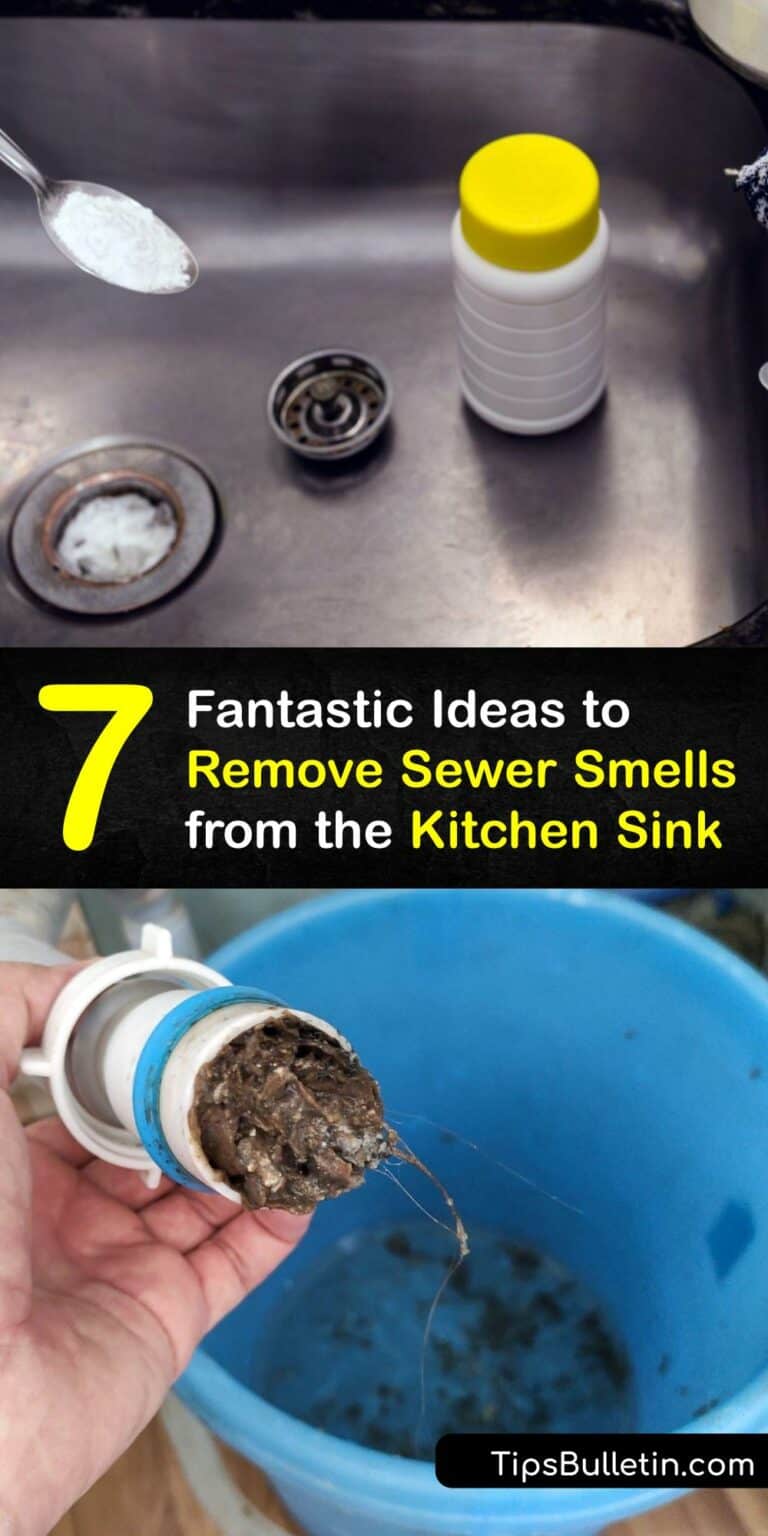








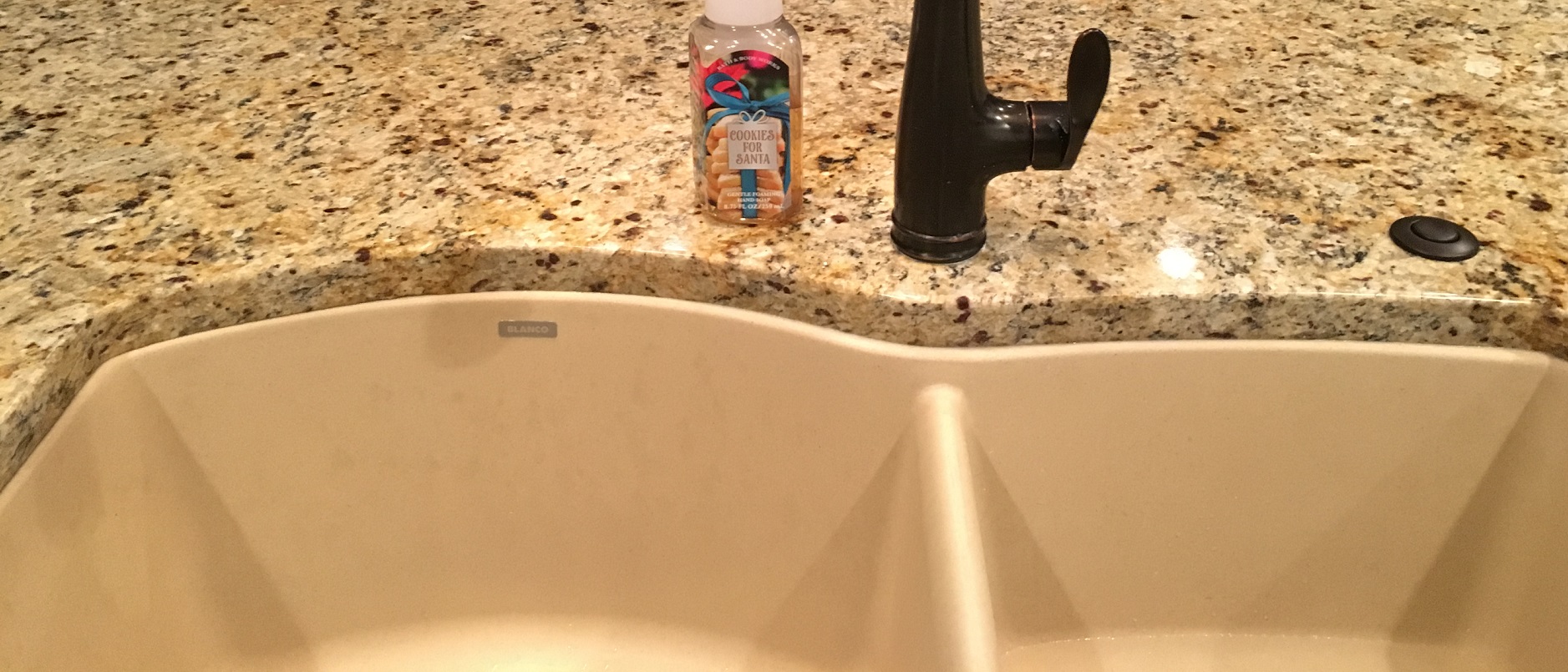




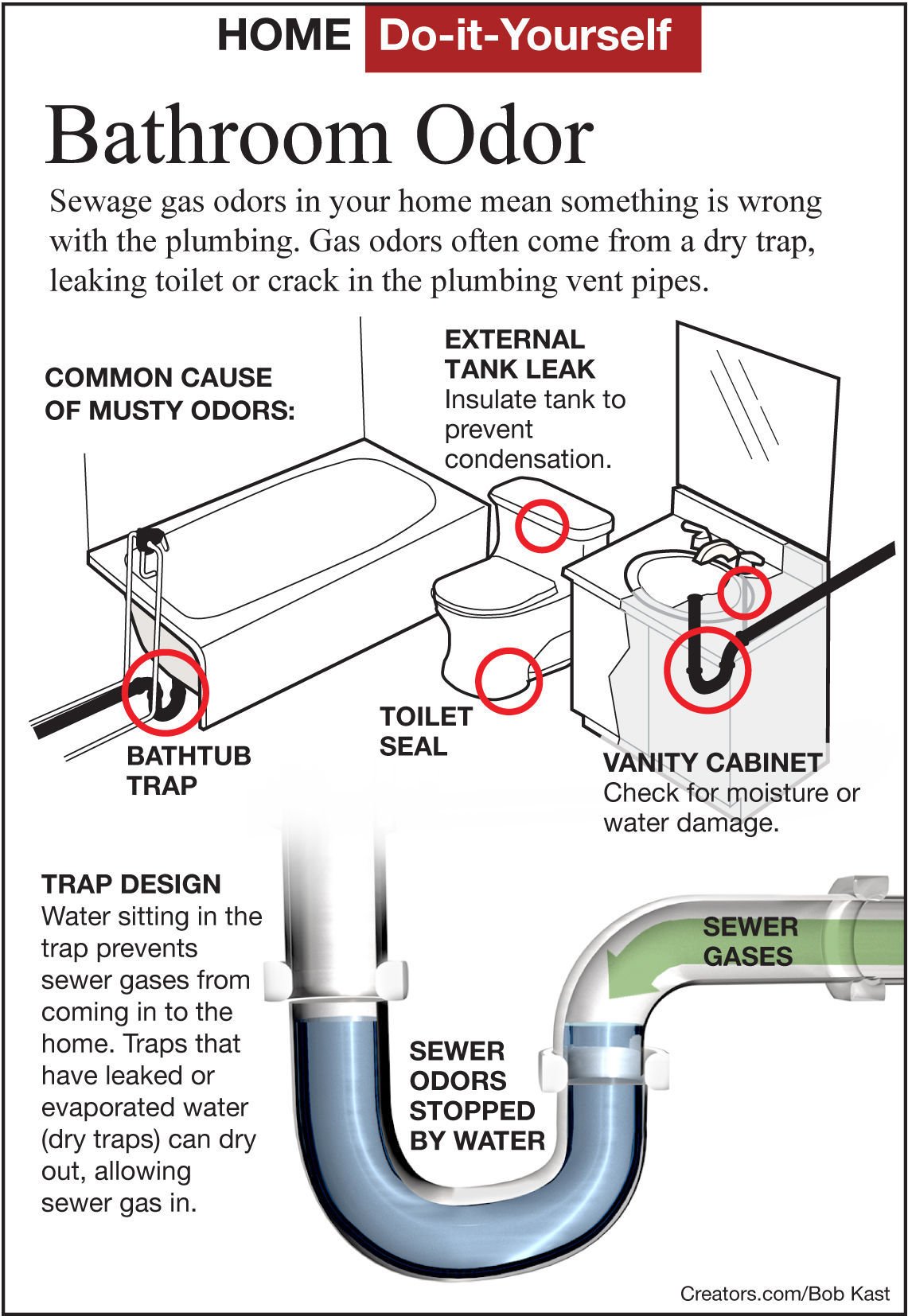



:max_bytes(150000):strip_icc()/sink-pipe-under-wash-basin-119001607-6f28aec4c66944efb7a9a38cb622ab8b.jpg)





